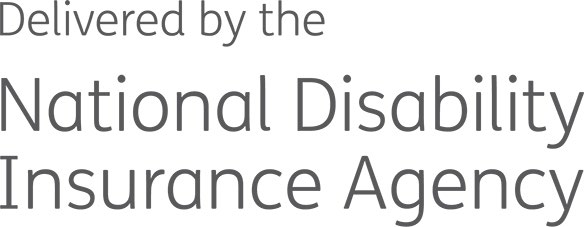
 Our reference:
Our reference: FOI 24/25-0011
GPO Box 700
Canberra ACT 2601
1800 800 110
29 August 2024
ndis.gov.au
B
By email: xxxxxxxxxxxxxxxxxxxxxxxxxx@xxxxxxxxxxx.xxx.xx
Dear B
Freedom of Information request - Notification of Decision
Thank you for your correspondence of 3 July 2024, in which you requested access to
documents held by the National Disability Insurance Agency (NDIA), under the
Freedom of
Information Act 1982 (FOI Act).
The purpose of this letter is to provide you with a decision on your request.
Scope of your request
As per your email dated 15 August 2024, I confirm you have requested access to the
following documents:
1. the average funding packages for individuals diagnosed with Borderline Personality
Disorder (BPD), Dissociative Identity Disorder and either PTSD or Complex Post-
Traumatic Stress Disorder (C-PTSD)
2. the average Improved Daily Living Skil s funding packages for individuals diagnosed
with Borderline Personality Disorder (BPD), Dissociative Identity Disorder and either
PTSD or Complex Post-Traumatic Stress Disorder (C-PTSD)\
3.
for the 2023/2024 financial year the overall number of participants with these
diagnoses as either primary or secondary listed disability.
[Borderline Personality Disorder (BPD), Dissociative Identity Disorder and either
PTSD or Complex Post-Traumatic Stress Disorder (C-PTSD)]
Extension of time
On 1 August 2024, you agreed to a 30-day extension of time under section 15AA of the FOI
Act, making 2 September 2024 the new date to provide you with a decision on access.
Decision Structure
I advise that during the internal consultation process, information was located for only some
parts of your scope, therefore, for ease of reading, I have addressed my decision as two
separate decisions as below.
5
Decision 1 - Dissociated Identity Disorder and Complex Post Traumatic Stress
Disorder (C-PTSD)
Scope:
1. the average funding packages for individuals diagnosed with Dissociative Identity
Disorder and ……….. Complex Post-Traumatic Stress Disorder (C-PTSD)
2. the average Improved Daily Living Skil s funding packages for individuals diagnosed
with ………., Dissociative Identity Disorder and Complex Post-Traumatic Stress
Disorder (C-PTSD)
3.
for the 2023/2024 financial year the overall number of participants with these
diagnoses as either primary or secondary listed disability – [Dissociative Identity
Disorder and Complex Post-Traumatic Stress Disorder (C-PTSD)]
Search efforts
A search for documents has been conducted by the Analytics, Data and Actuarial Division
(ADA) and no responsive documents were located in response your scope
Decision on access to documents
I have decided to refuse
access to the information you have requested relating to
Dissociative Identity Disorder and Complex Post-Traumatic Stress Disorder (C-PTSD) on the
basis that the documents are non-existent or unlocatable pursuant to section 24A of the FOI
Act.
A detailed statement of reasons explaining my decision is
Attachment A to this decision
notice.
Decision 2 - Borderline Personality Disorder (BPD) and PTSD
Scope:
1. the average funding packages for individuals diagnosed with Borderline Personality
Disorder (BPD) and PTSD
2. the average Improved Daily Living Skil s funding packages for individuals diagnosed
with Borderline Personality Disorder (BPD) and PTSD
3. for the 2023/2024 financial year the overall number of participants with these
diagnoses as either primary or secondary listed disability.
[Borderline Personality Disorder (BPD), and PTSD]
Search efforts
A search for documents has been conducted by the Analytics, Data and Actuarial Division
(ADA) and information was located in response to your scope.
Decision on access
I have decided to release this information to you in full.
Section 17(1)(c) of the FOI Act provides that an agency can produce a written document
containing the requested information, by the use of a computer or other equipment that is
ordinarily available for retrieving or collating stored information. We have been able to
produce a document containing this information as requested by you. I have, therefore,
treated your request as if it were a request for access to this document in accordance with
section 17(1)(c) of the FOI Act. This document is referred to as Document 1.
2

I made these decisions as an authorised FOI decision maker under section 23(1) of the FOI
Act.
Rights of review
Your rights to seek a review of my decision, or lodge a complaint, are set out at
Attachment C.
Should you have any enquiries concerning this matter, please do not hesitate to contact me
by email
at xxx@xxxx.xxx.xx.
Yours sincerely
Jennifer(JFD472)
Senior Freedom of Information Officer
Government, Risk & Legal – Complaints Management and FOI
General Counsel Division
3
Attachment A
Statement of Reasons
FOI24/25-0011
_________________________________________________________________________
Refused information
I have refused
access to the information you have requested on the basis that the documents
are unlocatable or do not exist under section 24A of the FOI Act.
Relevant law
Under the FOI Act, a person has a right to be given access to documents of an agency.
However, the right of access is subject to limitations, including grounds for refusal of access.
Section 24A of the FOI Act states that an agency may refuse a request for access to a
document if all reasonable steps have been taken to find the document and the agency is
satisfied that the document cannot be found or does not exist.
After reviewing the scope of your FOI application, I conducted searches with the NDIA’s
Analytics, Data and Actuarial Division (ADA) to assess whether the documents you requested
existed.
ADA responded advising that we cannot specifically report on Dissociative Identity Disorder,
or Complex Post Traumatic Stress Disorder C-PTSD) in relation to items 1-3 of your scope for
the following reasons:
Dissociative Identity Disorder, although a classification of the International Classification of
Diseases (ICD), it is not recorded in our database as a stand-alone disease, therefore we are
unable to provide results.
I have further been advised that we do not have a separate category for Complex Post-
Traumatic Stress Disorder (C-PTSD), and that the category of F43 – Post traumatic stress
disorder (PTSD) would likely include participants with varying types of PTSD and NOT
exclusively C-PTSD.
Additionally, prior to 2020, participants with PTSD were previously included in category F99 –
Other Psychological disabilities, and I have been advised that it is likely some participants with
C-PTSD may also remain in this category.
For these reasons, we are unable to isolate information specifical y relating to Dissociative
Identity Disorder or C-PTSD. We are also unable to provide a response to item 3 of your scope
relating to these 2 conditions for the same reasons as stated above.
Conclusion
On the basis of the advice I have received from subject matter experts, I am satisfied that the
information specific to Dissociative Identity Disorder and Complex Post Traumatic Stress
Disorder (C-PTSD) is unlocatable.
I therefore refuse access to the information under section a 24A of the FOI Act on the basis
the information does not exist.
4
Attachment C
Your review rights
Internal Review
The FOI Act gives you the right to apply for an internal review of this decision. The review
wil be conducted by a different person to the person who made the original decision.
If you wish to seek an internal review of the decision, you must apply for the review, in
writing, within 30 days of receipt of this letter.
No particular form is required for an application for internal review, but to assist the review
process, you should clearly outline your grounds for review (that is, the reasons why you
disagree with the decision). Applications for internal review can be lodged by email to
xxx@xxxx.xxx.xx or sent by post to:
Freedom of Information Section
Complaints Management and FOI Branch
General Counsel Division
National Disability Insurance Agency
GPO Box 700
CANBERRA ACT 2601
Review by the Office of the Australian Information Commissioner
The FOI Act also gives you the right to apply to the Office of the Australian Information
Commissioner (OAIC) to seek a review of this decision.
If you wish to have the decision reviewed by the OAIC, you may apply for the review, in
writing, or by using the online merits review form available on the OAIC’s website at
www.oaic.gov.au, within 60 days of receipt of this letter.
Applications for review can be lodged with the OAIC in the following ways:
Online:
www.oaic.gov.au
Post:
GPO Box 5218, Sydney NSW 2001
Email:
xxxxxxxxx@xxxx.xxx.xx
Phone:
1300 363 992 (local cal charge)
Complaints to the Office of the Australian Information Commissioner or the
Commonwealth Ombudsman
You may complain to either the Commonwealth Ombudsman or the OAIC about actions
taken by the NDIA in relation to your request. The Ombudsman wil consult with the OAIC
before investigating a complaint about the handling of an FOI request.
Your complaint to the OAIC can be directed to the contact details identified above. Your
complaint to the Ombudsman can be directed to:
Phone: 1300 362 072 (local cal charge)
Email:
xxxxxxxxx@xxxxxxxxx.xxx.xx
Your complaint should be in writing and should set out the grounds on which it is considered
that the actions taken in relation to the request should be investigated
5


